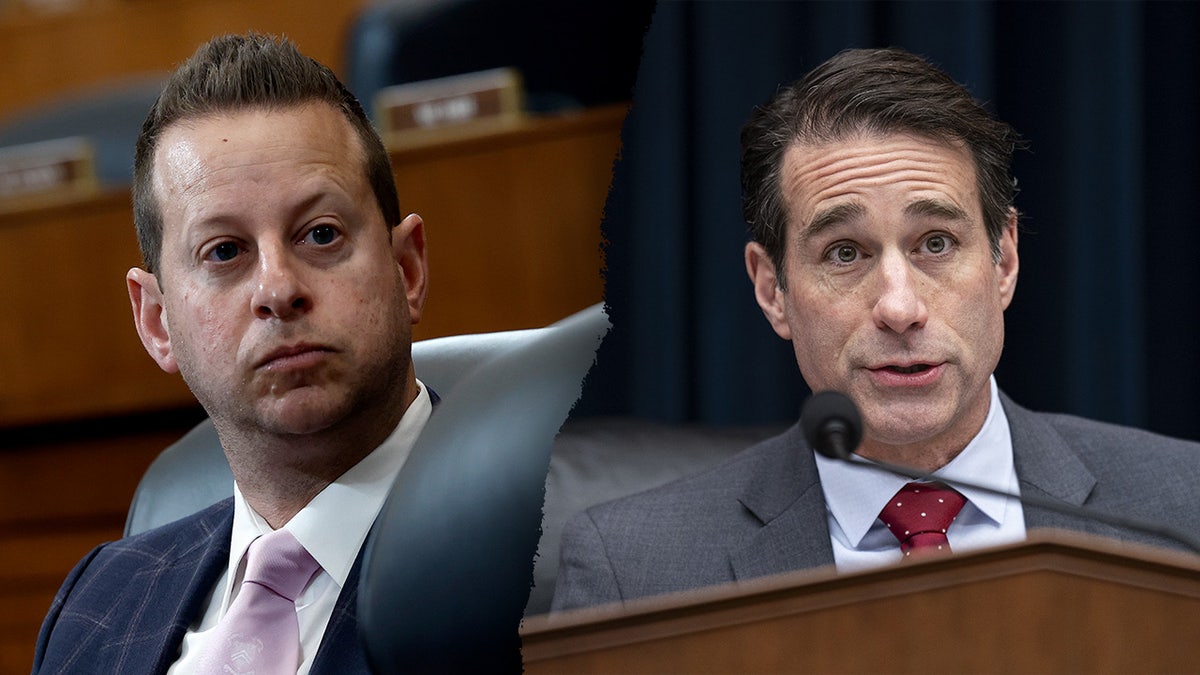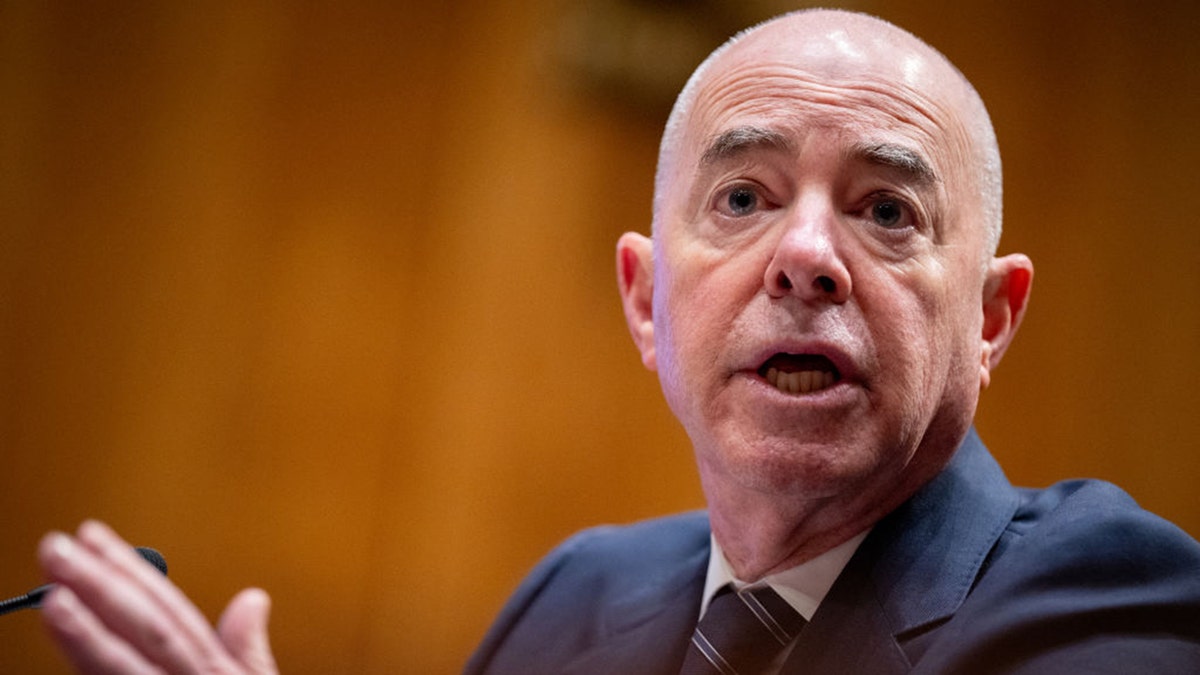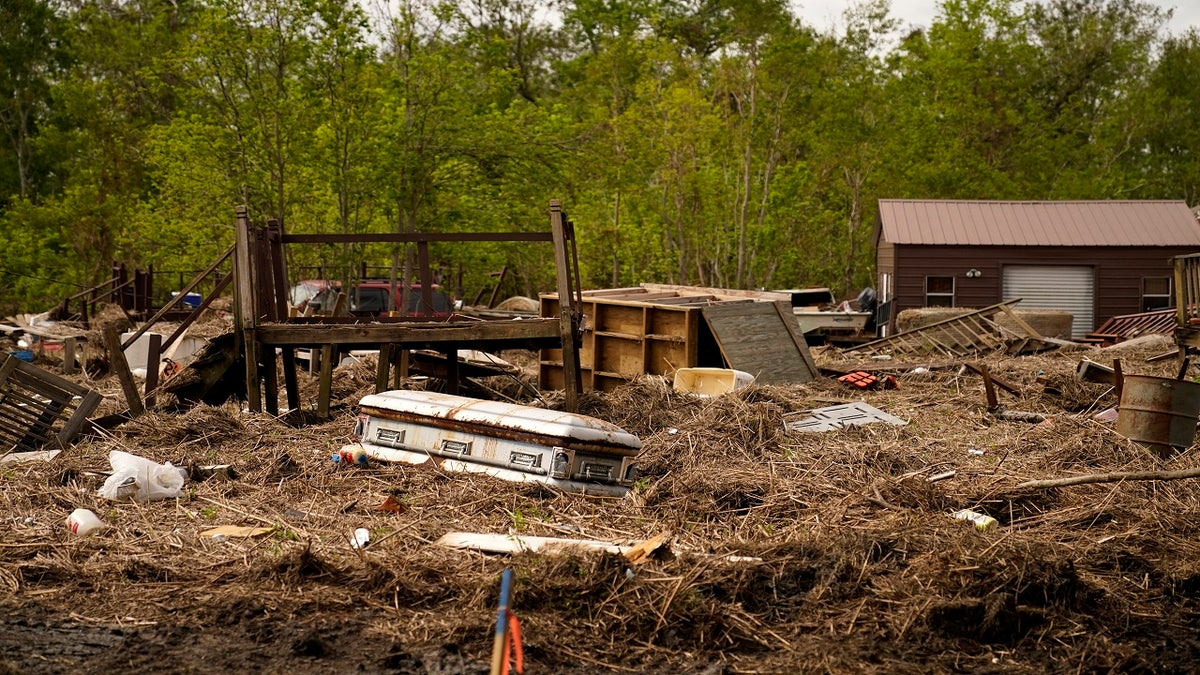With parts of the U.S. hunkering down for an intense hurricane season, a bipartisan pair of lawmakers is pushing to unchain the Federal Emergency Management Agency (FEMA) from the layers of government bureaucracy they say have “bogged” the agency down.
Reps. Jared Moskowitz, D-Fla., and Garret Graves, R-La., come from two states that have traditionally borne the brunt of the summer storm season. They want House leadership to take up their bill aimed at elevating FEMA to a Cabinet level position as soon as possible ahead of the rough weather period.
“The predictions are not good,” Moskowitz said of the coming storm season. “But now is the time for people to prepare in the community. Now’s the time to take advantage.”
FEMA sits under the jurisdiction of the Department of Homeland Security (DHS), where it was relegated when the department was created after the Sept. 11, 2001 attacks.
HOW STRONG CAN HURRICANES GET? HERE’S A BREAKDOWN OF CATEGORIES AND THE SAFFIR-SIMPSON WIND SCALE

Reps. Jared Moskowitz and Garret Graves mount a bipartisan push to get Congress to take up their bill to decouple FEMA from DHS. (Getty Images)
Moskowitz and Graves disagree over whether that was the right move – but both insisted it’s an untenable situation today.
“Look, Homeland Security is becoming a little more partisan in the eyes of Congress…I’ve got to make sure that disaster management doesn’t become partisan. Disasters don’t strike Democrats or Republicans. It strikes everybody, it strikes Americans,” Moskowitz said.
Graves told Fox News Digital of FEMA’s placement under DHS in a separate interview, “I understand the design and the intention, but it has not turned out as something that’s been beneficial.”
“Let’s be honest, DHS can’t even handle the border. It completely failed at securing the southern border,” Graves said. “I don’t think we need that type of leadership involved in disaster preparation, disaster prevention, disaster response, and recovery.”
“This is all about efficiency, it’s about being agile, being able to quickly pivot, move, and respond to some of these catastrophic disasters that we’ve seen in the United States over the past few decades.”
STORM SURGE DURING HURRICANES: WHAT ARE THEY AND HOW CAN YOU PREPARE

U.S. Homeland Security Secretary Alejandro Mayorkas (Photo by Andrew Harnik/Getty Images)
The National Oceanic and Atmospheric Administration (NOAA) is predicting an 85% likelihood of an “above-normal” Atlantic hurricane season this year, according to a late May press release.
It’s predicting eight to thirteen hurricanes in the period between June 1 and Nov. 30, including four to seven that are likely to be Category 3 or higher. NOAA is expecting 17 to 25 named storms in total.
“We are seeing flooding in places we didn’t see before, right? We’re seeing saltwater intrusion. We’re seeing… more rain being dumped in places. We’re seeing more fires, and we’re seeing stronger hurricanes. All of this is related to climate change,” Moskowitz said. “FEMA is going to be busy, right? And they’re going to continue to get busier. And I just think in order for FEMA to get better…they can’t do that so long as they’re in Homeland Security.”
Graves said there’s a backlog of hundreds of millions of dollars in disaster relief claims being tied down by the bureaucracy of being under DHS.
HOW CHANGES IN WEATHER IMPACT CARS: THE CHALLENGES YOUR VEHICLE MAY FACE IN EXTREME HEAT VERSUS COLD

A displaced casket that floated from a cemetery during flooding from Hurricane Ida, sits among displaced marsh grass and ruin, in Ironton, La., on Sept. 27. Graves said Hurricane Ida disaster claims are still being processed. (AP)
“We have hundreds of millions – and probably billions of dollars – in outstanding claims with FEMA right now from a 2016 flood that happened in South Louisiana. Hurricane Ida, Hurricanes…Delta, Zeta, storms that happened earlier this decade – all of them have billions of dollars in outstanding claims,” Graves said.
CLICK HERE TO GET THE FOX NEWS APP
“This really is just an agency that has gotten bogged down in bureaucracy. And when you think about the needs of a community in the aftermath of a disaster, people have gone through these traumatic experiences. In some cases, they’ve lost everything. The last thing in the world we need is our own government re-victimizing them.”
Fox News Digital reached out to DHS for comment.
